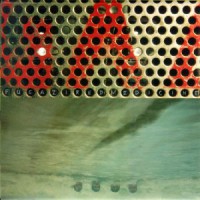It is said that youth is wasted on the young, with the implication that youth is synonymous with laziness and apathy. In the case of Ian Mackaye, however, the adage just doesn’t stick. By the time Mackaye was 18, he had already played in The Teen Idles and Minor Threat, unknowingly creating a path that others have followed down in the years since. When Mackaye formed Fugazi in 1988, along with fellow guitarist/vocalist Guy Picciotto, bassist Joe Lally and drummer Brendan Canty, expectations from fans were understandably high.
Fugazi delivered, and continued to do so. With each subsequent release following their dual-EP compilation 13 Songs, (1990’s Repeater, 1991’s Steady Diet of Nothing and 1993’s In On the Killtaker), Fugazi raised the bar, both for their fans and for themselves. Each album was always a step forward, never relying on past glories to carry them through. This was no nostalgia act, and the longer they played together, the more they realized they had to learn.
1995’s Red Medicine found them once again raising the bar for themselves, taking production duties away from Ted Nicely and going it alone. The result is a more experimental Fugazi, with Picciotto having previously remarked that this was the album where the band went from feeling intimidated in the studio to being able to take control. The minute-long feedback and noise intro that opens the album before slicing into “Do You Like Me?†immediately let fans know that Fugazi still had some curves to throw at them.
It’s not that the longtime fan wouldn’t have recognized their heroes. Guitars, drums and bass were still the backbone of Fugazi, and they clearly still relished playing them as loudly as possible. With Red Medicine, however, they started to find other colors and brushes to use with their palette. The band embraced noise and feedback like never before, punctuating songs like “By You†(sung by the soft-voiced Lally), “Latest Disgrace†and “Birthday Pony†with bite, while the clarinet added a dark, eerie atmosphere to the instrumental (and guitar-less) “Version†along with the dub rhythms. Perhaps inspired by their “Back to Base†collaborators, the legendary Jamaican musicians and production duo Sly and Robbie, Fugazi began to toy with their own conceptions of the band, trading rhythm for riddim to back up Mackaye and Picciotto’s noisy guitars, employed as well on the penultimate track, “Downed City.â€
Red Medicine was, in 1995, the pinnacle of what Fugazi had achieved artistically to date (Instrument, the film about the band directed by the album’s cover artist/photographer Jem Cohen, includes footage of the writing and recording sessions for the record). However, the same could be said for each subsequent release through 2001’s swan song, The Argument. With the benefit of hindsight, one can see Fugazi as a band that continued to evolve and one-up themselves until their announcement of an “indefinite hiatus†in 2002. The disappointment of fans was not only that of losing one of their favorite bands, but also of not being able to see what they decided to do next.
In 2015, knowing the history of the now-legendary band, it’s easy to look at the lyrics of “Long Distance Runner,†the song which brings Red Medicine to a slow yet abrupt finish as an apt description of the album, if not the band itself. “The farther I go the less I know,†Mackaye intones at the start, with his voice almost a whisper near the end singing, “If I stop to catch my breath/I might catch a piece of death/I can’t keep your pace if I want to finish this race.†Fugazi played by their own rules, and no one else’s, maintaining their youthful enthusiasm for creating and playing music until the end. The results sound just as vital today as they did back then.
